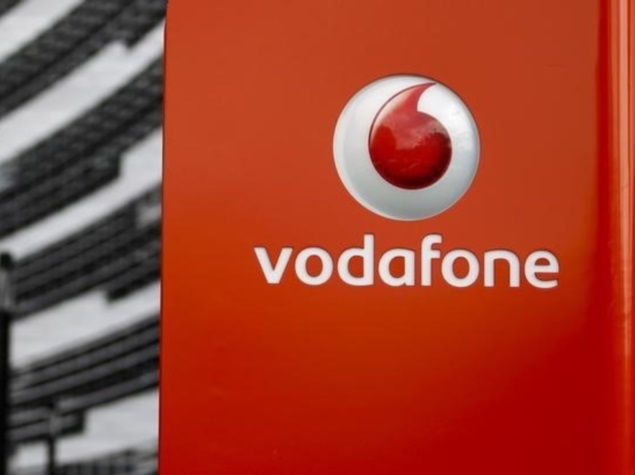- Home
- Telecom
- Telecom News
- Vodafone Says Some Governments Have Direct Access to Its Network
Vodafone Says Some Governments Have Direct Access to Its Network

The United States and Britain both came in for global scrutiny and criticism after Edward Snowden, a former contractor with the U.S. National Security Agency (NSA), disclosed their vast phone, email and internet surveillance operations.
But Vodafone, which has 400 million customers in countries across Europe, Africa and Asia, said in its "Disclosure Report" on Friday that countries in its reach are using similar practices.
While most governments needed legal notices to tap into customers' communications, there were six countries where that was not the case, it said.
"In a small number of countries the law dictates that specific agencies and authorities must have direct access to an operator's network, bypassing any form of operational control over lawful interception on the part of the operator," Vodafone said.
Vodafone did not name the six for legal reasons. It added that in Albania, Egypt, Hungary, India, Malta, Qatar, Romania, South Africa and Turkey it could not disclose any information related to wiretapping or interception.
The Vodafone report, which is incomplete because many governments will not allow it to disclose requests, also linked to already-published national data which showed Britain and Australia making hundreds of thousands of requests.
It showed that of the countries in which it operates, EU member Italy made the most requests for communication data.
Germany, which expressed outrage when it was revealed last year that U.S. intelligence services had listened into the calls of Angela Merkel, also made requests to listen in to conversations and collect the data around them, such as where the calls were made and how long they lasted.
Vodafone received no requests from the government of the United States because it does not have an operating licence there. It exited a joint mobile venture with Verizon last year.
The extent of U.S. and British surveillance was laid bare when the NSA's Snowden passed stolen secret documents to newspapers, triggering a spy scandal that caused a standoff between U.S. President Barack Obama and the Kremlin and led to calls for greater scrutiny of Western agents.
Access at the flick of a switch
In the cases of the six countries, the company said government agencies had inserted their own equipment into the Vodafone network, or diverted Vodafone's data traffic through government systems, to enable them to listen into calls, and determine where they were made.
"For governments to access phone calls at the flick of a switch is unprecedented and terrifying," said Shami Chakrabarti, Director of human rights group Liberty.
"Snowden revealed the internet was already treated as fair game. Bluster that all is well is wearing pretty thin - our analogue laws need a digital overhaul."
Western security services say they are fighting a silent war with extremists who are trying to kill their citizens and the head of Britain's MI5 Security Service has said Snowden's revelations were a gift to terrorists.
Vodafone runs mobile and some broadband operations in 27 countries and works with partners in 49 more. It also has a small number of local operator businesses in other countries through its acquisition of the Cable & Wireless worldwide business.
It said it had received requests in 29 countries.
Vodafone linked to data released by national governments, covering either 2013 or the most recent year available. It noted that each country, agency and operator counts requests in different ways and therefore it was difficult to compare them.
According to the most recent national reports, which were collated by the Guardian newspaper, Australia made 685,757 requests for details about calls, such as where they were made and to whom. It intercepted 3,389 calls.
Britain had similar statistics, with 514,608 requests for details and 2,760 interceptions. Germany made 18,026 requests, with 23,687 interceptions in 2012, the last time data was given.
Vodafone is the world's second largest mobile operator in terms of customer numbers, behind China Mobile.
© Thomson Reuters 2014
Catch the latest from the Consumer Electronics Show on Gadgets 360, at our CES 2026 hub.
Related Stories
- Samsung Galaxy Unpacked 2025
- ChatGPT
- Redmi Note 14 Pro+
- iPhone 16
- Apple Vision Pro
- Oneplus 12
- OnePlus Nord CE 3 Lite 5G
- iPhone 13
- Xiaomi 14 Pro
- Oppo Find N3
- Tecno Spark Go (2023)
- Realme V30
- Best Phones Under 25000
- Samsung Galaxy S24 Series
- Cryptocurrency
- iQoo 12
- Samsung Galaxy S24 Ultra
- Giottus
- Samsung Galaxy Z Flip 5
- Apple 'Scary Fast'
- Housefull 5
- GoPro Hero 12 Black Review
- Invincible Season 2
- JioGlass
- HD Ready TV
- Laptop Under 50000
- Smartwatch Under 10000
- Latest Mobile Phones
- Compare Phones
- Samsung Galaxy A07 5G
- Vivo Y500i
- OnePlus Turbo 6V
- OnePlus Turbo 6
- Itel Zeno 20 Max
- OPPO Reno 15 Pro Mini 5G
- Poco M8 Pro 5G
- Motorola Signature
- Lenovo Yoga Slim 7x (2025)
- Lenovo Yoga Slim 7a
- Realme Pad 3
- OPPO Pad Air 5
- Garmin Quatix 8 Pro
- NoiseFit Pro 6R
- Haier H5E Series
- Acerpure Nitro Z Series 100-inch QLED TV
- Asus ROG Ally
- Nintendo Switch Lite
- Haier 1.6 Ton 5 Star Inverter Split AC (HSU19G-MZAID5BN-INV)
- Haier 1.6 Ton 5 Star Inverter Split AC (HSU19G-MZAIM5BN-INV)
















